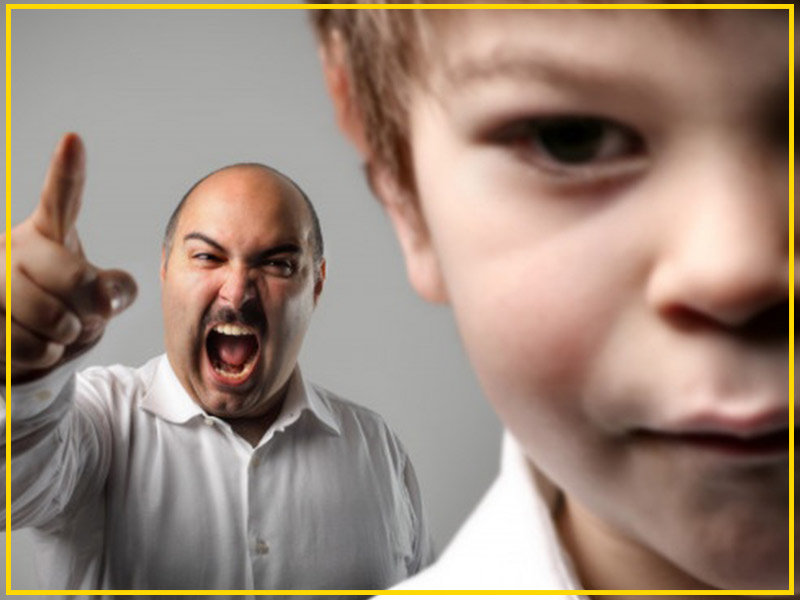
Parents yelling at kids to discipline them: this is something we all have either experienced while growing up or saw that around us. In a country like ours, using anger to discipline children is quite common. Yelling and slapping children to teach them a lesson, or disciplining them when they’re uncooperative, is more common than we think. Many times, it does have an instant impact. But does it help the child both in the short as well as long term? What effect does it have on that kid’s psychology when his/her parent uses anger as a way to discipline? To get answers to these questions, Onlymyhealth spoke to Dr Preeti Singh, Sr Consultant Clinical Psychology and Psychotherapy, Paras Hospitals, Gurugram.
Table of Content:-
Why this tactic is so commonly seen in India, was the first question we asked Dr Singh. “In India, a lot has been learned from how our parents handled us. Yelling, hitting was fairly acceptable,” she said. When a parent uses this tactic, “it generates pain, fear, and humiliation, which initially gives them an instant result,” the psychologist added.
Impact On Child’s Psychology

(Photo Credit: Freepik)
Yelling, shouting, or hitting your kid to discipline has a deeper impact on him/her than you think:
- It impacts the kid’s confidence and self-esteem, which go low.
- They become extremely anxious even at the slightest mistake.
- They can also come out to be truant and delinquent.
- They may perform poorly academically.
- The kid might develop antisocial personality disorder or conduct disorders.
- Such children can also become more susceptible to abuse by others as when such things happen, they might not be forthcoming in confiding in their parents. It, in turn, can prolong the period of abuse.
- Not just that, they can even develop a high tolerance for physical abuse and domestic violence in their relationships.
- The treatment can make them anxious, depressed, and even suicidal.
Also read: Is Co-Parenting Effective? Know Various Signs That Help You Determine Healthy Co-Parenting
What Are The Kinds Of Parenting Styles?

(Photo Credit: Freepik)
Late American psychologist Diana Baumrind has classified parenting styles into four:
Authoritative
The parenting style here is warm, responsive, and supportive. There are set rules and expectations from the kid are high. Parents who employ this style value the kid’s independence. The results are largely positive. The child scores well academically has high self-esteem and social skills. He/she is also less susceptible to mental health illnesses.
Authoritarian
In this, the parents lay strict rules and expect blind obedience. The expectations set are also high. This may result in low academic performance, a lack of self-esteem, and poorer social skills. The child also gets susceptible to mental health illnesses and can even lead to alcohol or drug abuse.
Permissive
With very few or no rules, this parenting style is lenient. The parents are warm and responsive. However, this permissive style of parenting can make the child egocentric with poorer social skills. He/she might develop impulsive behaviour and may have problematic relationships.
Neglectful
This parenting style is cold and unresponsive with no rules. The parents display indifference and there’s a lack of involvement. The result: the child might develop an impulsive bahaviour.
Also read: 7 Parenting Tips To Deal With Temper Issues In Toddlers
How To Discipline A Child?
Here is what Dr Singh suggests:
- Make sure you do not try to fix all that you see as problematic at once.
- Choose a behaviour that is easy to develop by the child based on his/her age. And this should be done collaboratively.
- The child should be taught gradually the consequence of his/her behaviour.
- Never manhandle your child.
- Acknowledge your child’s positive behaviour and reward him/her once in a while.
- As you focus on your child’s specific behavioural aspects, do not nag and lecture him/her over the other aspects.
By doing these, you can gradually develop your child’s behaviour the way you want. Parenting can be a challenging journey, with several ups and downs. It’s crucial to note that how you respond and react determine, directly or indirectly, your child’s behaviour. Hence, instead of adopting an extreme of anything, adopt a balanced approach that can help your kid to mature into an emotionally healthy adult.
(With inputs from Dr Preeti Singh, Sr Consultant Clinical Psychology and Psychotherapy, Paras Hospitals, Gurugram)
Photo Credit: Freepik
Also watch this video
How we keep this article up to date:
We work with experts and keep a close eye on the latest in health and wellness. Whenever there is a new research or helpful information, we update our articles with accurate and useful advice.
Current Version